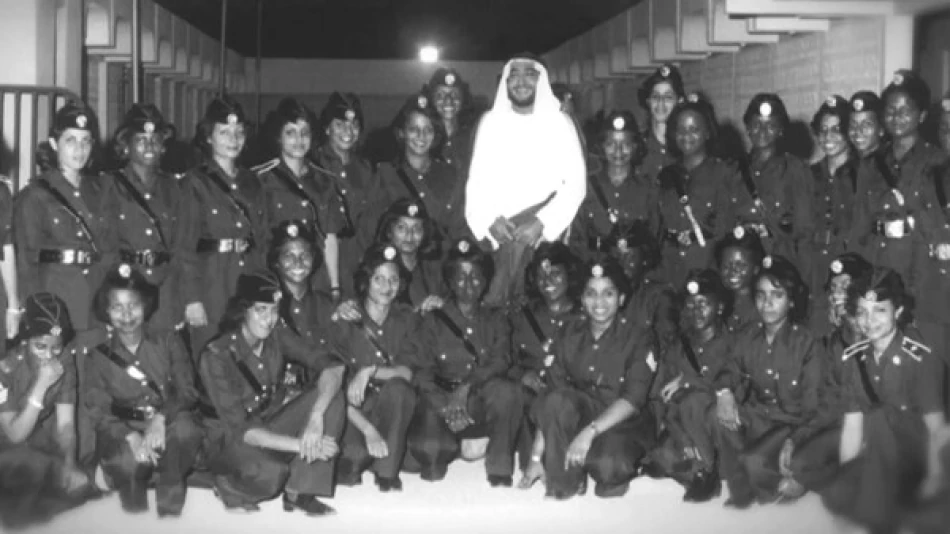
Emirati Women Prove Exceptional Capabilities in Law Enforcement
UAE's Female Police Force Emerges as Global Model for Women in Law Enforcement
The United Arab Emirates has quietly built one of the world's most advanced female police forces, with Emirati women now occupying senior leadership positions across cybercrime, field operations, and strategic planning. This transformation reflects a deliberate national strategy that began at the country's founding and has accelerated as security challenges become increasingly complex and technology-driven.
From Foundation to Leadership: A Strategic Evolution
Since the UAE's establishment in 1971, the country's leadership recognized that effective policing required the full participation of women, particularly in a rapidly modernizing society. This early commitment has paid dividends as female officers now handle some of the most sophisticated aspects of modern law enforcement.
The progression from basic participation to leadership roles demonstrates a systematic approach to capacity building. Female officers have moved beyond traditional administrative roles to lead specialized units in cybercrime investigation, artificial intelligence applications, and community prevention programs.
Technology-Driven Specialization
The UAE's focus on emerging technologies has created unique opportunities for female officers. Specialized training programs in electronic crimes, artificial intelligence, and digital forensics have positioned women at the forefront of 21st-century policing challenges.
This technological emphasis reflects broader UAE strategy. Just as the country positioned itself as a fintech and AI hub, its security apparatus has evolved to match these ambitions. Female officers trained in these areas represent a strategic asset that many countries lack.
International Implications and Regional Contrast
The UAE's approach contrasts sharply with regional neighbors and offers lessons for developed nations struggling with police reform. While countries like the United States grapple with diversity and inclusion in law enforcement, the UAE has systematically built female participation from the ground up.
Dr. Amal Sabah, Director of Employee Happiness and Head of the Women's Police Council at the Ministry of Interior, emphasized that this isn't just about representation—it's about operational effectiveness. Female officers have proven particularly effective in community outreach, family-related investigations, and digital crime prevention.
Community Integration Strategy
Beyond traditional policing, UAE female officers have become community educators, conducting workshops on women's and children's rights, digital safety, and crime prevention. This community-embedded approach has strengthened social cohesion while gathering intelligence that purely reactive policing cannot achieve.
Global Recognition and Soft Power Benefits
The international awards and recognition earned by UAE female police officers serve dual purposes. They validate the effectiveness of the country's approach while enhancing its soft power influence in international law enforcement circles.
This recognition matters beyond prestige. As global security challenges require increased cooperation—from terrorism to cybercrime to human trafficking—countries with respected, diverse security forces gain influence in shaping international responses.
The Economic Logic
The UAE's investment in female police officers reflects sound economic logic. Training and promoting women doubles the talent pool while creating role models that encourage broader female workforce participation. In a knowledge economy, this represents a significant competitive advantage.
Moreover, as the UAE positions itself as a global business hub, having a sophisticated, diverse security apparatus reassures international investors and residents about the country's stability and professionalism.
Lessons for Global Law Enforcement
The UAE model suggests that successful integration of women in law enforcement requires three elements: early commitment from leadership, systematic training in emerging technologies, and clear pathways to senior positions. Countries attempting piecemeal reforms might learn from this comprehensive approach.
As security challenges become more complex and community-oriented, the UAE's investment in female police leadership appears increasingly prescient. Other nations watching their police forces struggle with legitimacy and effectiveness may find valuable lessons in this Gulf success story.
Most Viewed News

 Layla Al Mansoori
Layla Al Mansoori






